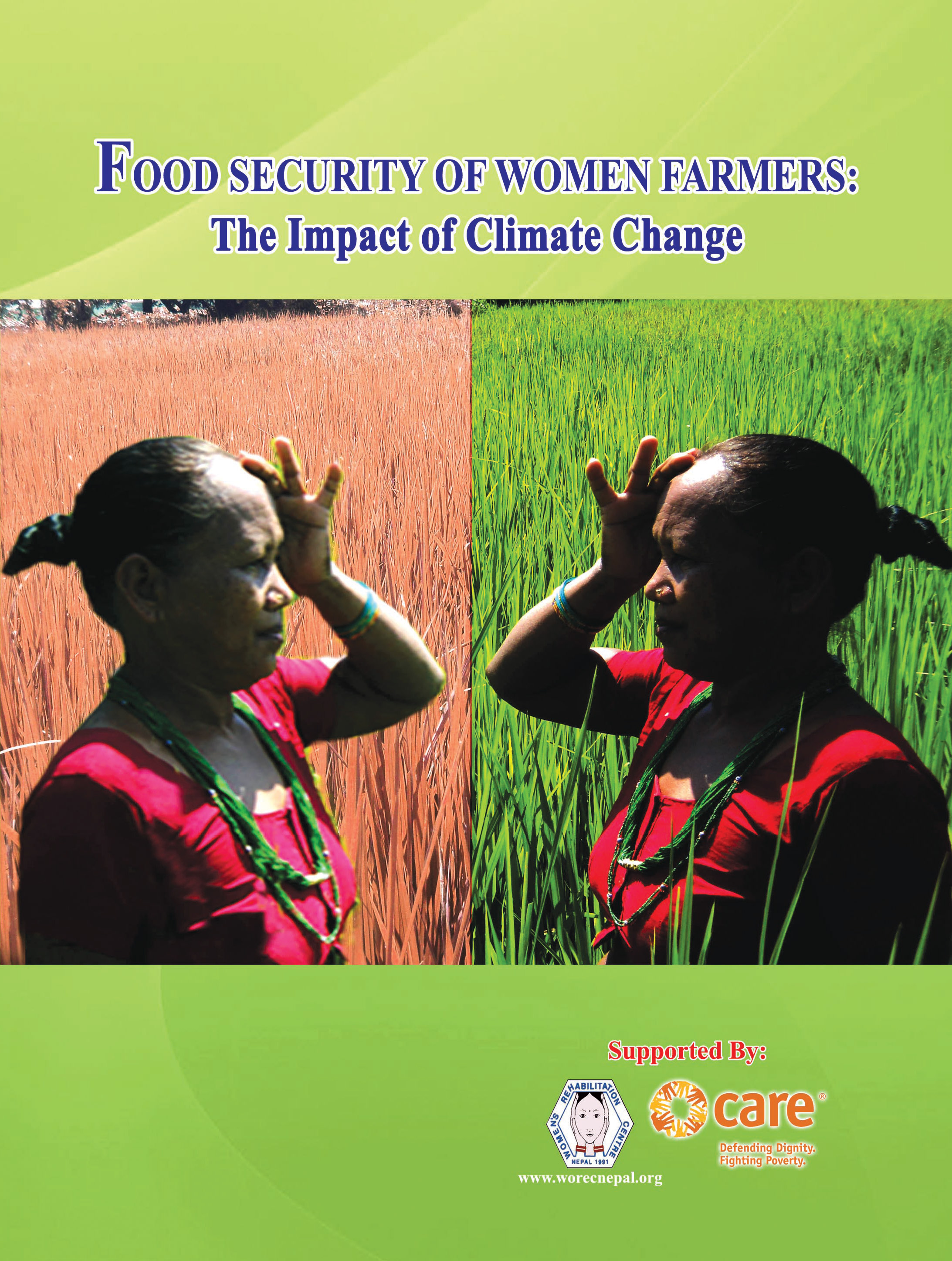Climate change has a major impact on food security in Nepal. Almost all women farmers in the country depend upon agriculture as a major source of income to enhance their food security. There has thus far been no systematic study about the impact of climate change on food security of women farmers. Therefore to fill this lacuna, the present study was conducted in five Village Development Committees with 150 households of Udayapur district in Nepal. The present research aims to study the perception of farmers about climate change, the impact of climate change on agriculture and food security. It also documents the adaptation strategies that farmers practice. The study also attempts to study the agricultural policies through a gender perspective and identify the gaps in the policy. Both primary and secondary sources were used for data collection. The production of the major food crops like wheat, maize, rice, fruits fresh vegetables and livestock has been in relative decline since the past several years. Sometimes total crop failure occurred due to drought, excessive rainfall or an epidemic of insects, pests and diseases. The change in the climatic pattern has resulted in decreased crop productivity that increases food insecurity of the people. Farmers use different adaptation measures to cope with the adverse effect of climate change. These helped to minimise crop losses and improve the food security situation of women farmers by preventing crop loss. The national agricultural policy was found lacking in gender sensitivity. Based on the analysis of the data, recommendations have been made to the government.
